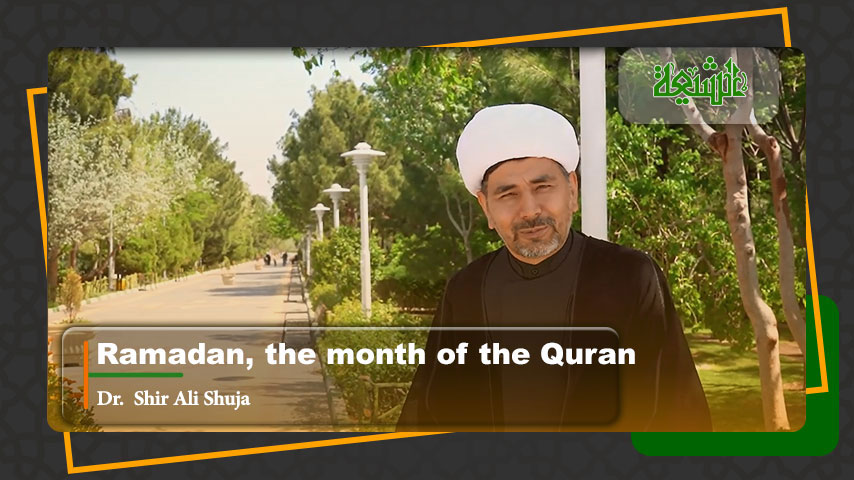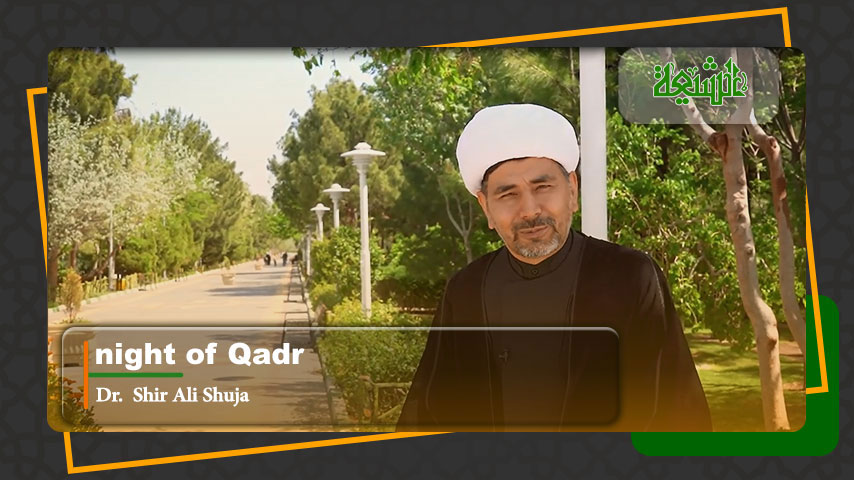In this part of the article titled “Hadith of the Two Precious Things”, we shall continue the discussion on different versions of the hadith Thaqalayn and their implications.
5) The gist of his saying “I am leaving unto you that which, as long as you uphold to it, shall never let you stray: the Book of Allah and my `itrat” is that anyone who does not uphold both of them spontaneously will eventually stray. This is supported by his saying, peace be upon him and his progeny, in the tradition of the Two Weighty Things, as Tabrani narrates it, “Do not go ahead of them else you should perish, and do not teach them for they are more learned than you.” Ibn Hajar has said: “In his statement, peace be upon him and his progeny, `Do not go ahead of them else you should perish, and do not teach them for they are more learned than you,’ there is proof that whoever among them is elevated to high offices and religious vocations must be preferred over all others,” up to the end of his statement. (1)
6) What makes it compulsory to follow and refer to Ahl al-Bayt is this hadith of the Messenger of Allah, peace be upon him and his progeny: “The similitude of my household among you is that of the ark of Noah: whoever embarks upon it is saved, and whoever lags behind it is drowned” (2), and his statement (PBUH), “The similitude of my Household among you is that of the ark of Noah: whoever boards it is saved, and whoever lags behind it is drowned. And the similitude of my Household among you is the Gate of the Israelites: whoever enters it is forgiven” (3). Also, consider his statement, peace be upon him and his progeny, “The stars protect the inhabitants of earth against drowning, and my Ahl alBayt protect my nation against dissension (in religious matters). If a tribe among the Arabs differs (regarding the commandments of Allah, the High, the Mighty) from them, they will all then differ and become the party of Satan” (4).
This is fully sufficient to oblige the nation to follow them and to protect it against differing from them. I do not think that there is any language of the man clearer than this hadith to support my argument.
7) What is meant by his word, peace be upon him and his progeny, “Ahl al-Bayt” (i.e. “Household”) here is their entirety, collectively, as being their Imams, not merely their entirety inclusively, for this status is nothing but a testimony for the Proofs of Allah – particularly those who stand for His Commandments – as reason and scholarship would rule. A learned group among the majority has admitted the same, such as Ibn Hajar in his Al-Sawa`iq al-Muhriqa. Some of them have said that what is probably meant by `Ahl al-Bayt’ who are security are their own learned men, for they are the ones who are like guiding stars; when lost, inhabitants of the earth will get what they were ominously warned against. Ibn Hajar said: “That will be during the time when al-Mahdi (as) appears, and the tradition indicates that Jesus will pray behind him, and the anti-Christ will be killed during his time; after that, unusual events will succeed one another,” up to the end of his statement which is quoted in the exegesis of verse 7, in Chapter 11, page 91, of Al-Sawa`iq al-Muhriqa. Somewhere else he indicates that the Messenger of Allah, peace be upon him and his progeny, was asked once: “How would people live after them?” and he answered: “They will live like an ass whose spleen has been broken.” (5)
8) You know that likening them to the ark of Noah implies that whoever resorts to them in matters related to the creed, deriving the branches and basics of religion from their virtuous Imams, will certainly be saved from the fire of hell, and whoever lags behind them is like one who seeks shelter during the flood with a mountain so that it may save him from Allah’s destiny, but he will eventually be drowned in the water while the first will be hurled in the inferno, may Allah protect us from it.
The reason why they, peace be upon them, are compared to the Gate of Salvation is that Allah has made that Gate a symbol of humility before His Greatness and submission to His Judgment; therefore, it becomes a reason for forgiveness. This is the reason for the similitude. Ibn Hajar, in the exegesis of Chapter 7 of the Holy Qur’an, in Chapter 11, page 91, of his Al-Sawa’iq al-Muhriqa, has accepted it while saying, after quoting these and other similar traditions, “The reason for their similitude to the ark is that whoever loves and highly respects them as means of thanking the One Who gave them honours, following the guidance of their learned men, will be saved from the darkness of dissension, and whoever lags behind it is drowned in the sea of ingratitude and will perish in the paths of tyranny.” Then he adds the following: “As to the Gate of Salvation (meaning thereby their similitude thereto), Allah has made entering that gate, which probably was the gate of Shittim or of Jerusalem, in humility, seeking forgiveness, a reason for salvation, and He (likewise) has made loving Ahl alBayt a reason for this nation’s salvation.” (6)
The sahih books are consecutive in stating that the following of Ahl al-Bayt is mandatory, especially quoting the purified `itrat. Had I not curbed my pen for fear of boring you, I would have elaborated in detail, but what I have stated here must suffice for the purpose.
NOTES:
__________________________________
1. Refer to it in the chapter dealing with the Prophet’s will on page 135 of Al-Sawa`iq al-Muhriqa, then ask him why he preferred to follow al-Ash`ari in the roots of religion, and the four jurists in its branches, and how he came to consider as superior to them in the narration of hadith men like `Umran ibn Hattan and his likes among the Kharijites, favouring over them in exegesis Muqatil ibn Sulayman, the Murji’ite who believes that Allah has a physical form, and favoured to them in the sciences of ethics, etiquette, conduct, and psychology Ma`ruf and his likes, and how he disregarded the Prophet’s own brother and wali, the one and only executor of his will, for general caliphate and representation of the Prophet (PBUH). Then ask him how he came to refer to the descendants of the Messenger of Allah, peace be upon him and his progeny, the descendants of cowards. What would one who turns away from the purified progeny of Muhammad (PBUH) in all such lofty stations and religious obligations and follows in the footsteps of those who oppose them do with the Sahihs of the Two Precious Things and the like? And how can he claim that he is upholding the progeny and embarking upon their Ark and entering through their Gate of Salvation?
2. Al-Hakim quotes it from Abu Tharr on page 151, Vol. 3, of his Sahih Al-Mustadrak.
3. Al-Tabrani quotes it in his Al-Awsat from Abu Sa`id. It is hadith 18 of the 25th Al-Arba`in [forty] ahadith of Nabhani’s Al-Arba`in Al-Arba`in (the sixteen-hundred ahadith), p. 216.
4. This is quoted by al-Hakim on page 149, Vol. 3, of Al-Mustadrak from Ibn Abbas. Al-Hakim adds: “This is an authentic hadith though they (both Shaykhs, i.e. Bukhari and Muslim) did not include it (in their own books).”
5. Refer to the conclusion of his chapter on the predictions of the holy Prophet (PBUH) of hard times following his death, near the conclusion of page 143 of Al-Sawa`iq al-Muhriqa. We ask Ibn Hajar: “Since this is the status enjoyed by the scholars of Ahl al-Bayt (as), why do you then turn away from them?”
6. Consider this statement of his, then tell me why he did not follow the guidance of their Imams in the branches and tenets of the faith, or in the principles and bases of jurisdiction, or in the sciences of the Sunnah and the Book, or in anything related to ethics, conduct, and etiquette, and why he lagged behind and thus drowned himself in the oceans of those who deny Allah’s favours, ruining themselves in the avenues of oppression. May Allah forgive him for telling lies about us and unfairly assaulting our beliefs.
















